Product Design
The JIX Project
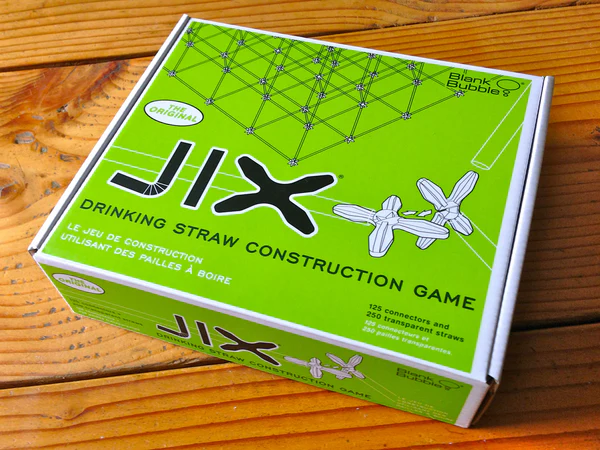
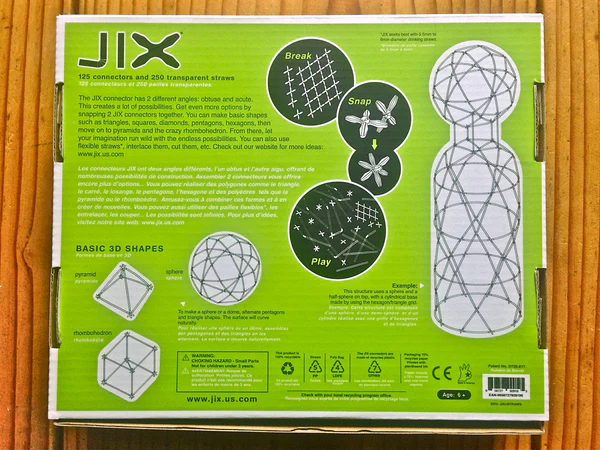
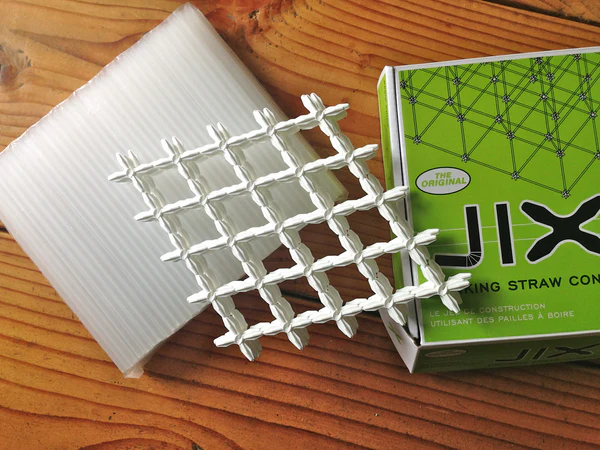
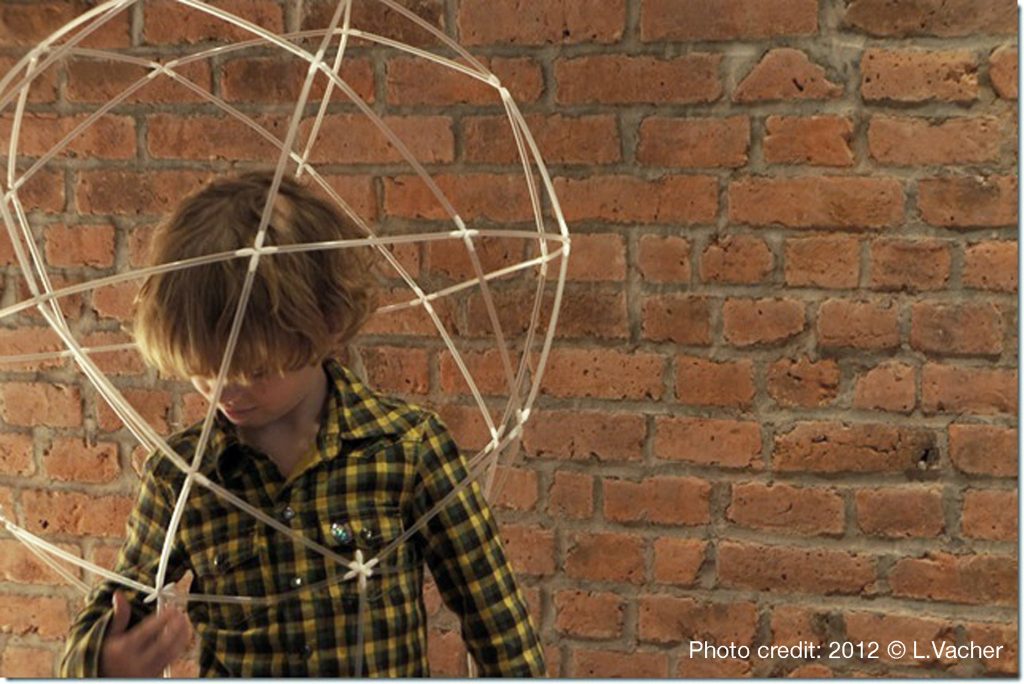
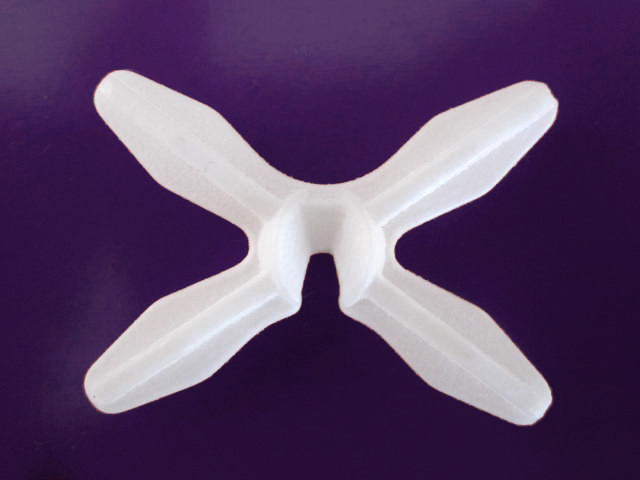
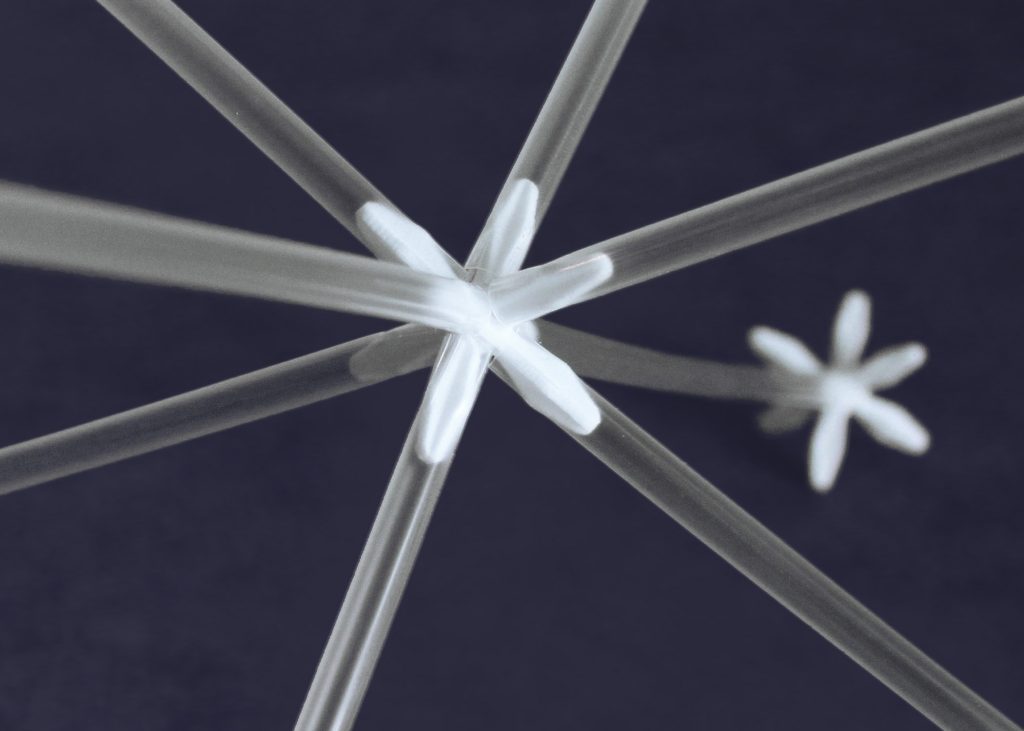
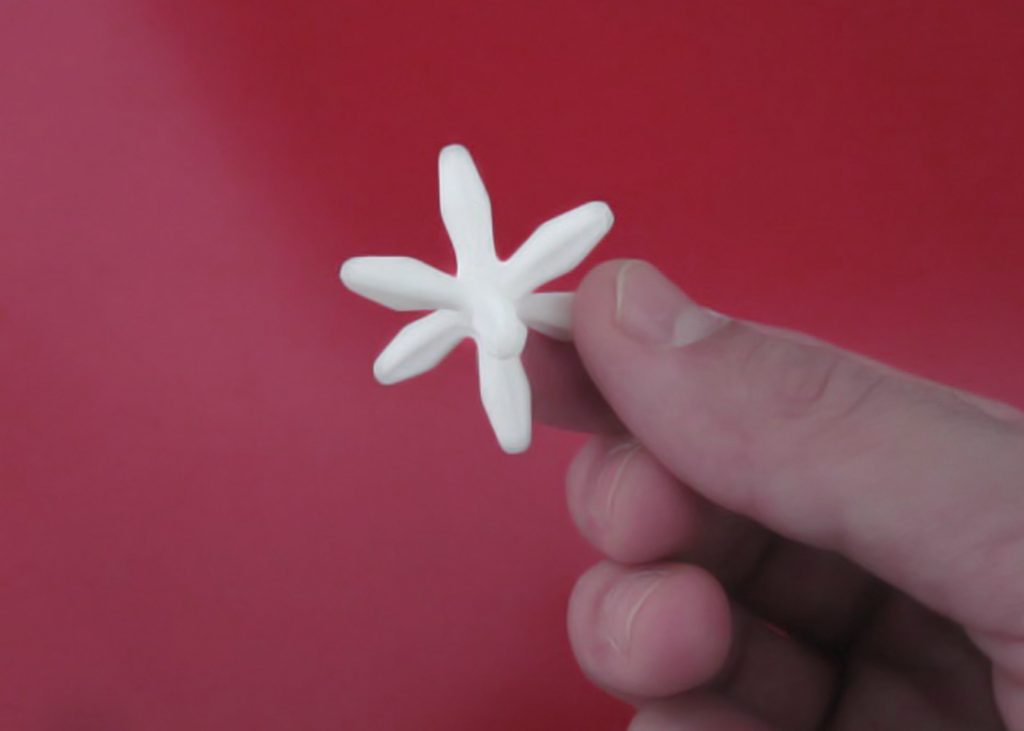
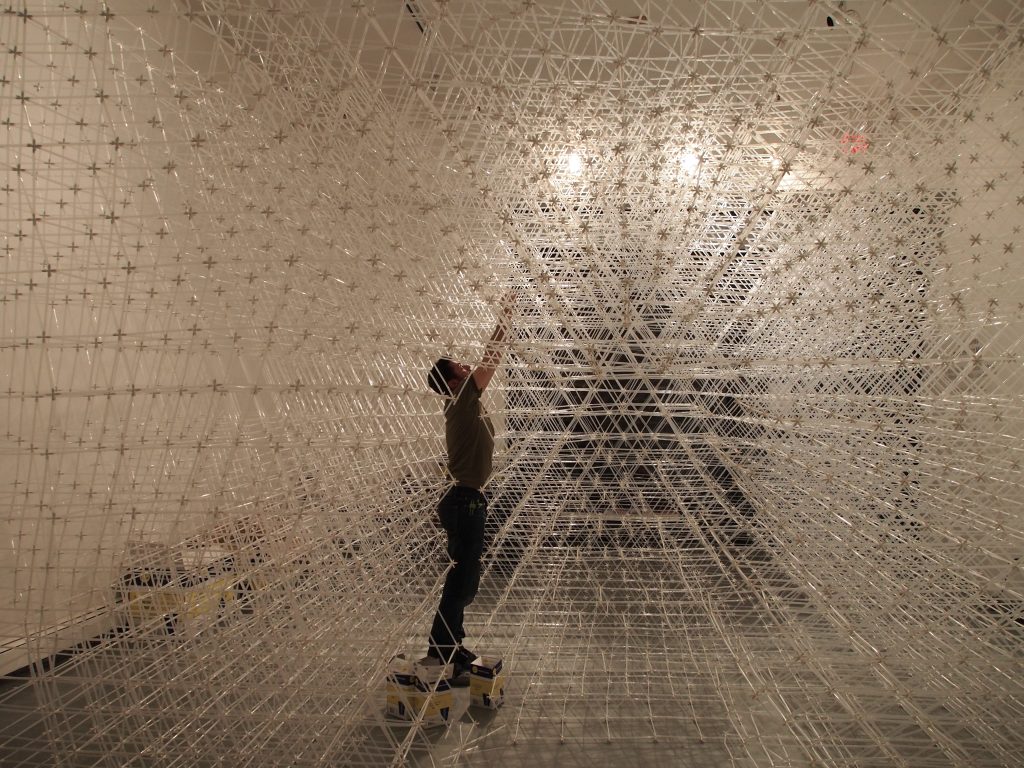
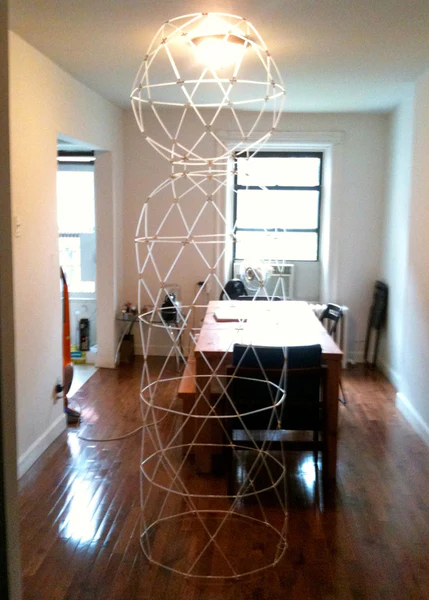
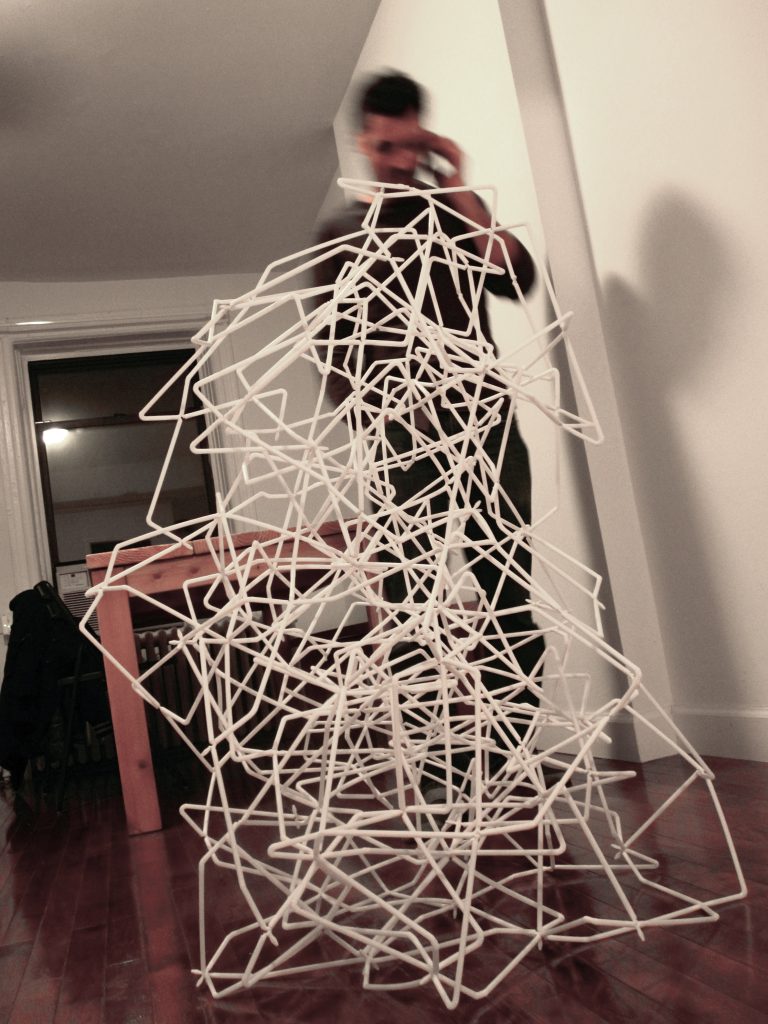
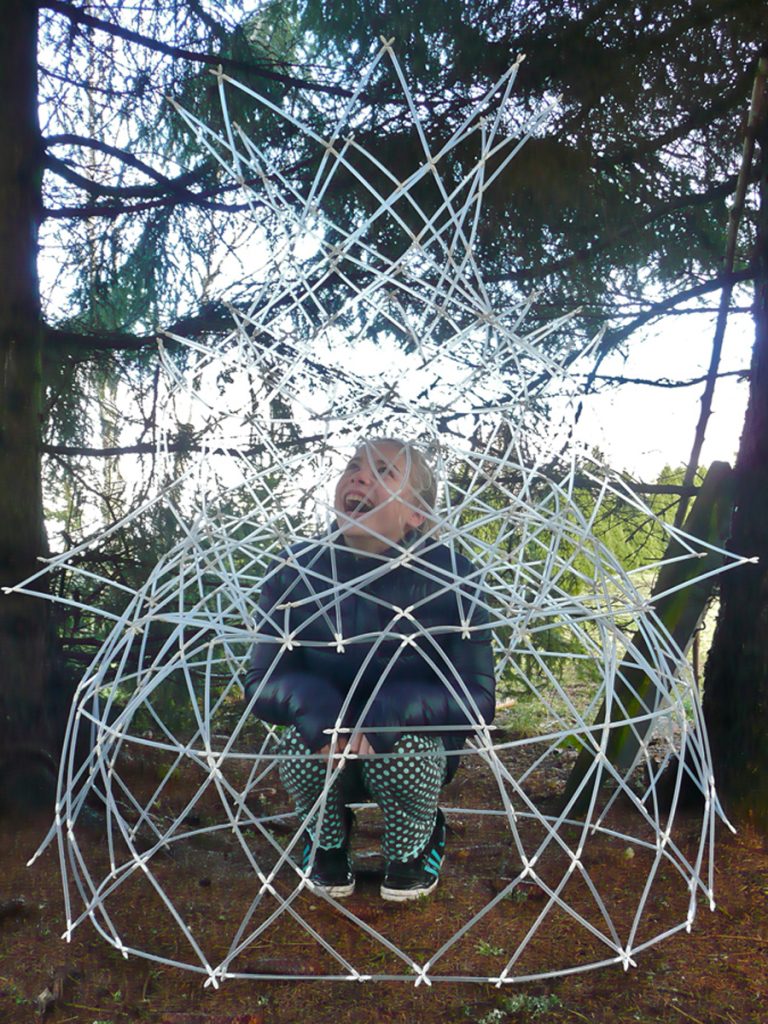
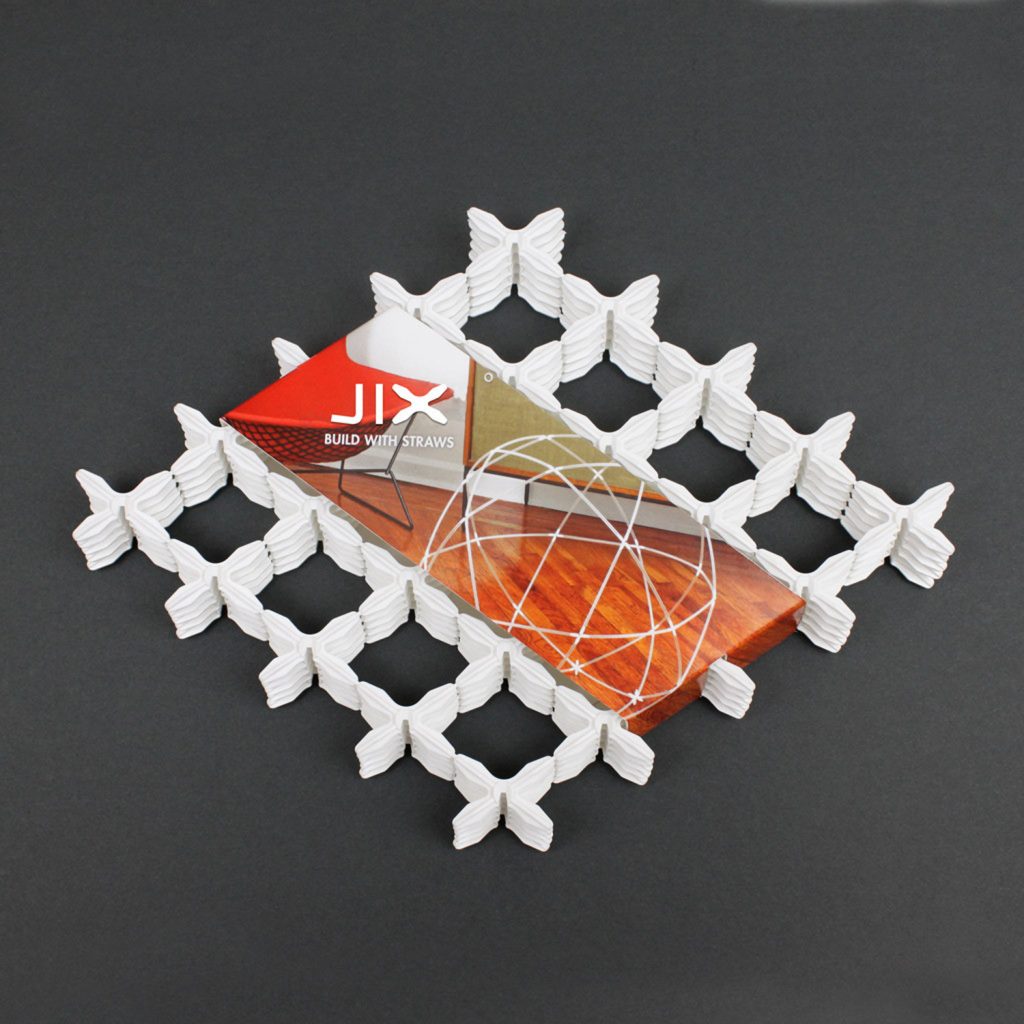
Website: https://www.jix.us.com/
JIX is a project that originated in 2010. It consists of the development, industrial manufacturing and marketing of recycled plastic connectors that can be used either individually or intersected to form double connectors in the shape of a multidimensional star. Specifically designed to connect standard plastic or paper straws together, they allow the creation of objects, furniture and sculptures of various sizes and shapes as well as large-scale immersive installations playing on the relationship to space and light.
Fueling a reflection on the status of the artist and that of works of art while responding to a desire to place the creative process at the heart of the artistic experience, the JIX connectors, as a principle for an open work of multiple dimensions, were marketed both in the form of a construction kit available for public use, thus inviting the appropriation by others of the construction system, and used by Patrick Martinez-Mees as a resource allowing him to create artistic installations in various contexts. The marketing of the construction set also provided the artist with a stable means of subsistence allowing him to freely pursue an artistic activity independent of traditional artistic circuits.
In addition to the formal and economic dimensions of the project, there was a reflection on the ecological implications of the production conditions of this work and a more general questioning of the individual responsibility of any human productive endeavor. Initially envisioned as a project aimed at reusing and recycling the plastic straws then widely in circulation, Patrick Martinez-Mees nevertheless encountered the rigidity of certain production mechanisms and a reality concerning the actual recycling of plastic materials that fell far short of his expectations and requirements in this area. Unable to perceive a satisfactory alternative, he decided in 2016 to discontinue the production and promotion of the JIX connectors and to pause the project.
JIX was notably a winner of the Good Design Award and was regularly available in museum shops such as the Museum of Modern Art in New York (MoMA), the Museum of Mathematics in New York (MoMath), and the Virginia and Albert Museum in London.












